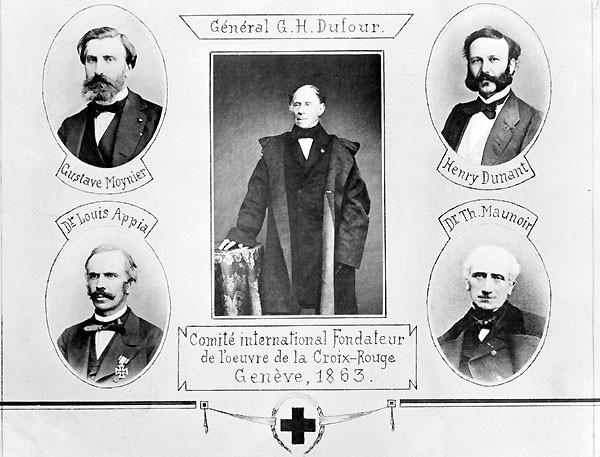The Red Cross at 150: Why World's Oldest Aid Organisation is Struggling to Cope

One hundred and fifty years after it was founded, the International Committee of the Red Cross (ICRC) says it is struggling to cope with humanitarian catastrophes caused by war.
The destructive power of modern weapons and technology, and the proliferation of non-state actors, means the ICRC now faces demands unimagined in the original Geneva conventions.
Established in 1863 when Swiss businessman Henri Dunant witnessed the suffering of soldiers wounded on the battlefield of Solferino in northern Italy, the world's oldest aid organisation remains committed to protecting the rules of war and the rights of prisoners of war.
With an annual budget of $1.2 billion, it employs 13,000 people in 92 countries, including many of the most dangerous parts of the world.
On its 150<sup>th anniversary, ICRC chief Peter Maurer said the movement was "needed today more than ever", but warned it was unable to cope with the demands posed by "new weapons and new types of actors coming into conflict".
Use of pilotless drones, and the involvement of multiple armed groups meant frontlines were constantly shifting, Maurer said, leading to a rising toll from "collateral damage".

It is estimated that civilians today make up more than 90 percent of war victims. At Solferino, there was just one civilian casualty.
Maurer said: "We see conflicts when one convoy has to overcome 35 roadblocks before the convoy gets to areas where food and medicine can be distributed."
Over the years, he said the movement had "tried its best to protect populations and care for soldiers in the battlefields", but had also been responsible for "developing laws, and inspiring diplomats' and states' policies to create the legal framework necessary to ensure a minimum of respect for humanity in wars, armed conflicts and battles".
"My conclusion is that if the ICRC is getting bigger and bigger, this is because there are incontestable needs to address," he said. "Conflicts have not become less damaging for civilian populations or for soldiers."
Along with organisations such as the Federation of Red Cross and Red Crescent societies, the organisation's guiding principle remained the protection of international humanitarian law and the delivery of aid to civilians, said Maurer.
But he warned the movement was struggling to meet the demands posed by the increasing prevalence of conflicts involving non-state militias.
"The philosophy and the methods the ICRC developed for dealing with nation states are also valid for the non-state groups that we are seeing today," said Maurer.
"There are no alternatives to discussion and constant engagement when it comes to convincing them to respect laws, the rules of conduct, to distinguish between military personnel and civilians, and rules of conduct for how to treat prisoners."
Last November, the ICRC issued a warning over Syria's escalating humanitarian crisis, saying the nature of the conflict left it unable to plan ahead. Instead, it was increasingly forced to deliver aid on an ad-hoc, day-to-day basis, as and when conditions permitted.
Relief workers were very often prevented from reaching certain parts of the country, said Maurer.
"We are a humanitarian organisation. We do not protect ourselves with weapons. Our strength is our conviction," he said.
Conflicts from Afghanistan to Mali to Congo meant the organisation remains as vital today as when it was established, he said.
"If I would make a calculation of people in dire need of aid, I would certainly put on the front page the conflicts in the Democratic Republic of Congo, in Somalia, in Yemen, in Afghanistan and in the Sahel.
"It is being on the ground, near the conflicts, knowing the different actors, being aware of the population's suffering and responding to the population's needs.
"It is about engaging with the arms-bearers to get them to respect a minimum of humanitarian law. That is the essence of what we are doing in Afghanistan, in Syria, in Somalia, and in Congo."
In face of increasing challeges, the ICRC would need to co-operate with the national Red Cross and Red Crescent societies, as well as with the UN agencies and other non-governmental organisations, he said.
"Balancing distinction and co-operation is a big challenge," said Maurer, adding the organisation had "an important role to constantly remind the international community of where the objective needs are."
For an interactive timeline of 150 years of ICRC history, see the ICRC website.
© Copyright IBTimes 2025. All rights reserved.





















